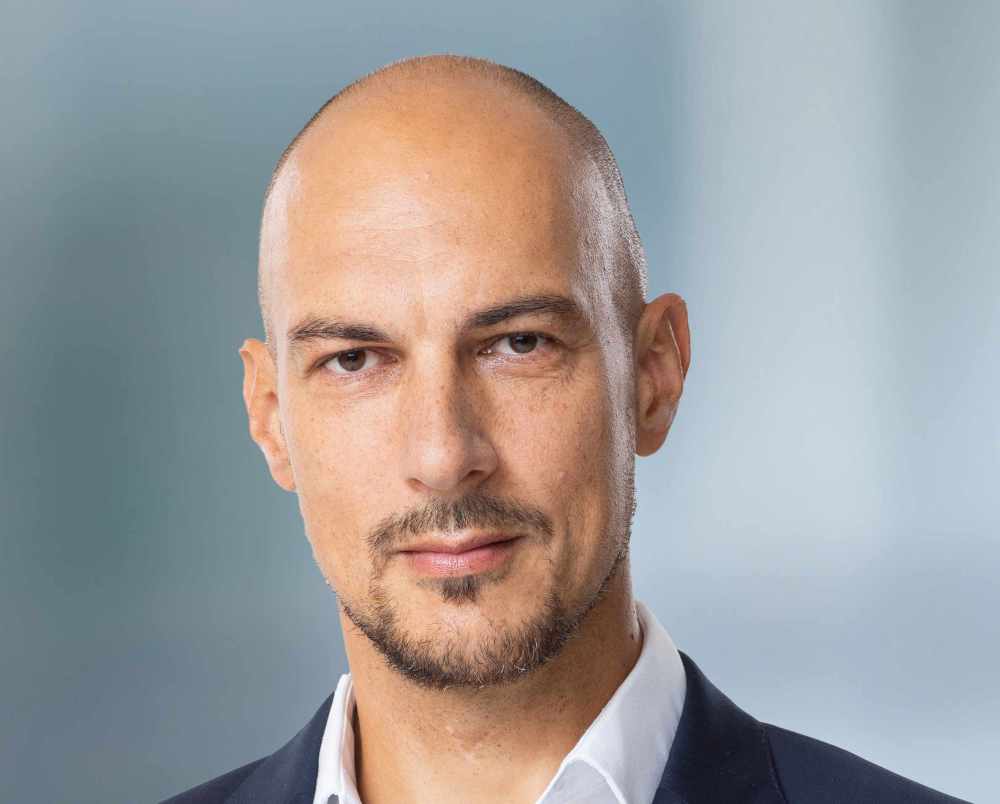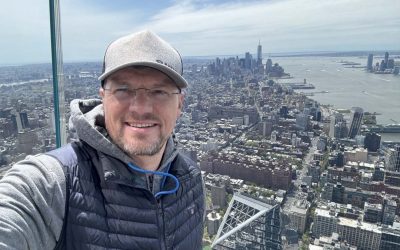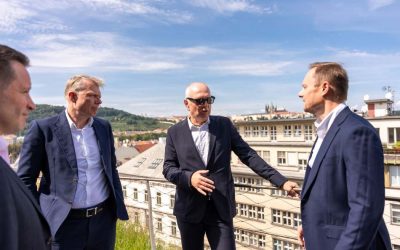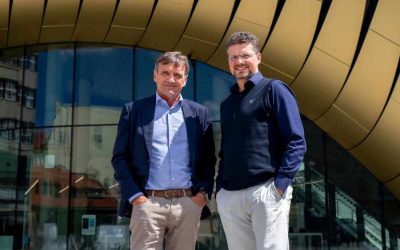What’s it like to change companies after a couple decades?
Sometimes you need to step out of the luxury of being in a comfortable seat for 20 years. Otherwise, you risk getting a bit lazy. But also, it was exciting to be able to be part of recreating the company’s presence in the Czech Republic. What really kept me at my old job for so long was great colleagues and exciting projects. When I saw that Drees & Sommer would be involved in the sort of huge projects that I have always worked on, then I was interested. Unfortunately, I can’t talk about our biggest one yet.
Those certainly help with publicity. It’s not that Drees & Sommer hasn’t been active here, but you’re not considered a major player on the market at the moment.
Unless you’re a German company here, there isn’t a lot of awareness about the company yet, even though we have over 6,000 employees. We tended to have a fly-in and fly-out approach to providing due diligence and we had a few larger projects. But we never had a properly established office here with, let’s say, 15 to 20 permanent employees. Starting over, the strategy is to further develop an independent business that doesn’t rely just on German clients. I’ll use my network and bring a more flexible Czech feel to the service while combining it with German precision.
What sort of projects are you targeting?
We’re preferably looking at high-performance industries, so projects that involve semiconductors or battery cell assembly and production. We’re able to provide integrated factory planning where we design the full factory process from scratch based on the product you need to make. This is driven from Germany where we have a specialized department. That’s how we’re different. This allows us to be focused on large-scale production facilities, but at the same time we provide traditional real estate consulting.
Everyone in real estate and construction talks about the need to digitize to improve performance and sustainability. But the industry seems stuck in the last century and buildings don’t seem much smarter. Why is that?
It’s a very traditional industry and usually the leaders and biggest experts are the most experienced ones, so they’re also the older guys. And not all of them like new things and prefer to keep doing the things the old way. But this generational change has to happen, like in the IT sector and modern ways of manufacturing. It all begins at the universities — that’s where it should be promoted much more strongly. Young people should become the ambassadors of digitization so they can show the benefits to the more experienced guys.
What’s your goal for the next couple years?
The goal is to build awareness of the brand and to be one of the top 5 consultants. I want investors to think of us as ‘not to be missed’, whenever they’re thinking about something more complicated than a residential or a simple logistics hall. I want to build a solid office with a presence of 30-40 people, but it has to be market-driven, not artificially inflated. Our office is supported by great knowledge from the surrounding countries and benefits from granted presence of these experts if demanded by project or client needs, but our aim is to be able to deliver experts locally.
You’re hiring now…is it still so tough to find people?
It’s not so bad now as it was, it’s changed a bit beginning last summer. There have been some redundancies which influenced the job market.






